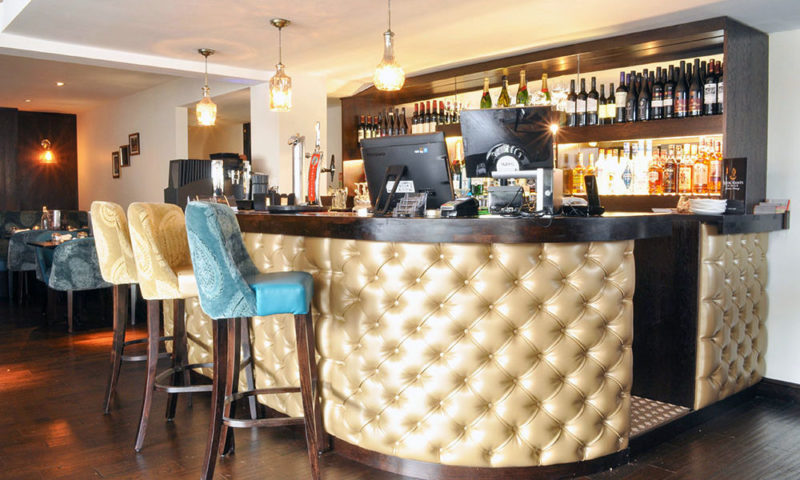Register to get 2 free articles
Reveal the article below by registering for our email newsletter.
Want unlimited access? View Plans
Already have an account? Sign in
With Brexit looming, the hospitality industry is right to feel jittery. According to a KPMG report on labour migration in the hospitality sector, compiled for the British Hospitality Association (BHA), the industry is highly reliant on EU nationals. Between 12.3% and 23.7% of the hospitality sector workforce is made up of workers from other EU countries.
KPMG estimate that by 2029 the hospitality sector could face a total recruitment gap of over one million workers. The hospitality sector is already struggling to recruit enough workers to fill its vacancies and has the highest number of vacancies as a share of its total employment compared to any other sector.
The research by KPMG for the BHA announced that a third of all vacancies in the hospitality sector are currently classed as hard-to-fill vacancies. Key drivers of this are, the high rate of staff turnover in the sector, the lack of interest in hospitality jobs from UK workers and job seekers, and skills gaps.
Brexit will cause shortage of hospitality workers
According to shift-planning software company Planday, Brexit will cause a shortage of at least 60,000 hospitality workers per year. A survey commissioned jointly by Planday and the Institute of Hospitality and conducted by YouGov found that one in 10 hospitality workers plan on leaving the UK as a direct result of Brexit.
The survey sought opinions from 261 hospitality managers and 407 hospitality workers. It found that 21% of managers were expecting reduced access to labour, 19% said the labour situation would push wages up, and 15% of managers were concerned about skills shortages due to Brexit.
Hospitality sector to recruit more workers from the UK
Hospitality were the first major UK sector to present a plan to reduce its dependence on EU workers. The plan drawn up by the BHA was submitted to government and outlined a 10-year strategy for recruiting a substantially higher proportion of workers from the UK. The BHA have stressed the essential need for continued but declining access to EU workers over that time.
Hospitality industry stepping up to challenge
In preparation for Brexit, the hospitality industry is looking at a number of ways to overcome the recruitment challenge. These include:
- Recruiting from new markets
- Promoting hospitality opportunities at schools and colleges
- Providing more training
- Offering flexible working
- Increasing staff benefits
- Upskilling staff and offering career opportunities
- Removing the mind-set of menial work
For UK workers this will mean better opportunities in the sector.
New hospitality qualifications
The BHA has been lobbying government for a hospitality qualification for some time. The government announced the introduction of a new hospitality qualification last year, but it won’t be introduced until 2022, meaning newly qualified staff won’t be available until 2023.
The BHA say the decision to wait five years before launching the new apprenticeship would be a disaster for pubs, restaurants, hotels and takeaway chains that all currently rely heavily on EU workers.
Nevertheless, for those considering a career in hospitality, there will ultimately be study opportunities available to improve career prospects. The qualification, when it comes in, is a good move.
Job security, automation and robots
The hospitality industry is one of the few sectors least likely to be affected by robots and automation. Hospitality needs people. However, no industry is safe from automation, as one theme park restaurant in Japan has shown, where a robot chef prepares pancakes, rice and doughnuts.
Hospitality workers needn’t be fearful of a robot takeover. Hospitality is reliant on the human element. Starting a career in hospitality now is an exciting time with opportunities to embrace technology. AI and automation could provide some of the answers for staff shortages and will most likely fill the gaps for the most menial jobs.
For anyone considering a career in hospitality, future opportunities in the industry are positive. Even in a shaky economic climate, people always need food, drink and places to stay, which means jobs in the sector are reasonably secure.
Wages rising in hospitality sector
Staff shortages in hotel and catering are already causing wage inflation in the hospitality sector as the number of EU applicants decline.
Andrea Wareham, director of human resources at Pret a Manger, told a parliamentary committee: “If I had to fill all our vacancies with British-only people I would not be able to fill them because of the lack of applications.” She did not think pay was a factor and added that staff can earn “really good money” with pay, including bonuses, rising to £40,000 to £45,000 “within a few years” of joining.
These are all great reasons to start your career in hospitality right now.
By Dakota Murphey



















